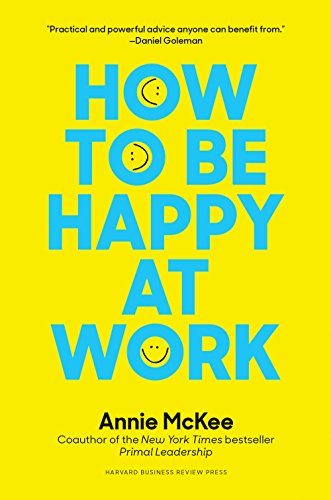How to be happy at school
September 8, 2017
Educators enter the profession because of a deep commitment to learning, children, and their communities. But once they arrive in schools, they often find that day-to-day work can be grueling and stressful. In her new book, Penn GSE’s Annie McKee gives readers tools to break the cycle of unhappiness in their daily work.
Educators enter the profession because of a deep commitment to learning, children, and their communities. But once they arrive in schools, they often find that day-to-day work can be grueling and stressful. The constant message that they’re not doing enough, and not doing it well despite their valiant and often brilliant efforts causes many educators to become frustrated—even unhappy and cynical. Perhaps we shouldn’t be surprised by the high rates of teacher turnover, especially in high-needs schools.

In her new book How to be Happy at Work: The Power of Purpose, Hope, and Friendships, McKee gives readers tools to break the cycle of unhappiness in their daily work. Here, she offers a few ideas for educators.
Making a choice
There is a persistent myth — one that even “fun” teachers buy into — that work is not supposed to be enjoyable. Forget it. If you are unhappy at work, you’ll be unhappy for at least a third of your waking hours. Before long, that unhappiness will impact your ability to do your best at work, and it will seep into the rest of your life.
Work is where we grow, it’s where we learn, it’s where we reach our potential. Being happy at work starts with believing that you deserve to be fulfilled by your work, and that your happiness will translate into success for you, the children and families your serve, and your school.
Don't lose touch with hope and optimism
Stress is a happiness killer, and educators experience far too much stress on the job. It’s easy to slip into pessimism and negativity, especially in schools where promised improvements never seem to arrive. Neuroscience can tell us that hope and optimism make us more creative and better able to deal with stress.
Reflect constantly on your values
Education is compelling and exciting, but that’s not always enough to keep us engaged with our purpose. What we need to do is to consciously attend to what matters most to us, asking ourselves asking: What do I care about? What do I believe in? What is important to me, and how can I ensure that I live this at work? Being able to live our values, even in small ways in our daily activities, is how we stay connected to our purpose.
Note your impact
Educators often focus on the big challenges they are facing: Issues in the school, friction with parents, tension with leadership. These very real worries and challenges can overshadow the fact that educators have profound impact every single day. So rather than feeling as if you are constantly falling short of someone’s expectations, give yourself credit for the positive impact you are having.
Kick the script
Educators can become isolated and mentally exhausted trying to follow a script of how they think an educator should act. This script can end up governing their interactions with parents, colleagues, and administrators. It gets in the way of real and authentic relationships, which we’ve found is one of the keys to happiness on the job. We need real, warm, and caring relationships, relationships that are supportive and mutually respectful.
A good mission is not enough
Many unhappy educators — like their peers throughout the nonprofit world — often wonder how working for a cause they believe in can leave them so emotionally battered. It’s important to remember that the mission of any organization, even a high-minded one, is focused more on outcome measures, and less on employees’ engagement. The best organizations—and the best leaders—know that to achieve results and sustain success, they must attend to employees’ overall happiness at work.
But, even the best schools can’t do it for you. This realization can be liberating. Your school might not focus on your happiness, but you can. That means thinking about the purpose and meaning of your work, cultivating real friendships, and maintaining an enticing vision of the future. If you do this, you will be emotionally, intellectually, and physically equipped to do your best.


